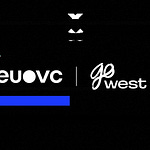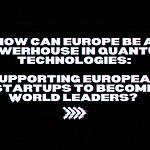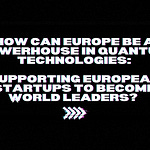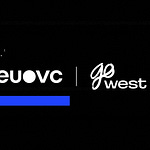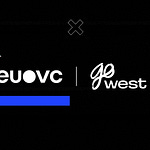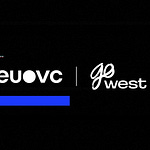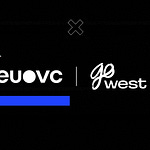Welcome back to another episode of Upside at the EUVC Podcast, where Dan Bowyer, Mads Jensen of SuperSeed, Lomax Ward of Outsized Ventures dissect the stories reshaping European venture, from Helsinki’s Slush takeover to China’s rising leverage, TPU vs GPU battles, the UK’s AI money wave, and why immigrants found half the unicorns in the Western world.
This week’s episode ranges from Germany’s €35B space ambitions to Meta’s TPU dealmaking, from cookie law rollbacks to Lithuania’s secondhand unicorn, all culminating in one conclusion: Europe’s window for action is open, but narrowing.
🎧 Here’s what’s covered
00:26 Slush recap: from Nokia’s fall to Europe’s most founder-first event.
05:11 Web Summit vs Slush: why nonprofit incentives matter.
07:52 Germany’s €35B space strategy: defense, procurement & sovereignty.
10:21 The immigrant founder effect: 50–90% of unicorns built by newcomers.
13:12 The political backlash: skilled vs low-skilled migration confusion.
17:22 Defense stocks boom: tanks, night vision, gearboxes — and 200%+ gains.
20:51 Vinted’s €8B secondary: Lithuania’s marketplace becomes half the ecosystem.
22:58 Cookie banners may finally die: EU proposes a digital omnibus rollback.
25:07 UK’s AI investment wave: growth zones, sovereign AI, drug discovery.
31:20 China’s new posture: rare earth leverage, Belarus factories & new red lines.
35:41 Europe’s multipolar dilemma: squeezed between the US and China.
40:14 AI Corner: 70% of AI startups now using Chinese open source models.
42:00 Google’s TPU moment: Gemini 3 beats frontier models across 19/20 benchmarks.
43:20 Meta & Anthropic commit to TPUs — a major shift in compute economics.
44:20 Nvidia’s blowout quarter: $57B Q3, 75% margins, sold out through 2026.
46:15 Deals of the Week: Voice (Germany) raises $50M; nursing workflows go AI.
✍️ Show Notes
Slush: Europe’s Counterweight to Corporate Conferences
Slush began as a small anti-risk movement in Helsinki in 2008 — just as Nokia began to crumble. Today it’s Europe’s most founder-centric gathering.
What makes it special:
– nonprofit structure, no EBITDA pressure
– 400+ tables for structured founder–investor meetings
– 25+ meetings in two days if you want
– less expo, more execution
– “dark Nordic nightclub meets mega-hackathon” aesthetic
Dan:
“Slush feels like Wembley Arena packed with startups. It’s a vibe.”
Mads skipped all the programming to take 25 back-to-back founder meetings. That’s the point.
Germany’s €35B Space Strategy: Sovereignty or Panic?
Germany dropped a shocker: a €35 billion space plan, larger than the entire ESA budget.
Why it matters:
– space = defense = geopolitics
– Europe has lagged SpaceX by a decade
– new plan includes procurement from newspace, not just old primes
– Europe wants sovereignty from Starlink dependency
Lomax:
“This is 10 years late — but better now than never.”
Mads:
“It’s real money, but Europe should be doing €100B — together.”
Immigrants Build Unicorns
Dealroom shows:
– 44% of US unicorn founders are foreign-born
– 54% of the UK’s top 100 fastest-growing companies have foreign-born founders
– US city-level numbers hit 50–90%
Dan:
“Everyone is from somewhere else. Just take the DNA test and relax.”
The challenge? Public sentiment.
Reform leads UK polls with an anti-immigration message. Lomax warns this risks throwing out the high-skilled talent baby with the political bathwater.
Mads connects the dots:
“We’ve allowed low-skilled migration to create a backlash — and now risk losing the high-skilled founders we desperately need.”
Defense Stocks Go Vertical
European defense OEMs are having their biggest bull run in decades:
– TKMS Marine Systems: +35% at IPO
– Renk (tank gearboxes): +200% since listing
– Exosun (night vision): +130%
A pipeline of new listings (CSG, KNDS…) is coming.
Lomax calls it:
“This is all old defense — like betting on horses in 1914.”
But demand is real: governments will buy tanks, if only because the world is once again dangerous.
Vinted: The Lithuanian Juggernaut
A secondary sale pegs Vinted at €8B — making it 50% of Lithuania’s entire startup ecosystem value.
Dan:
“Sometimes you just stay in the game long enough for luck to find you.”
Patience and timing matter.
Cookies Might Actually Die
The EU’s new Digital Omnibus Bill signals a huge climbdown:
– rollbacks on GDPR enforcement
– rollback of cookie consent laws
– AI Act delays
– recognition that Europe “created worse outcomes than the problems it tried to solve”
Mads says it plainly:
“You can’t be the best at making things if you’re the best at restricting things.”
Privacy groups are furious. The tech ecosystem is relieved.
The UK’s AI Investment Wave
Dan highlights a rare alignment of serious private + public capital:
– £25B private investment
– two AI growth zones (North Wales, South Wales)
– a £500M Sovereign AI fund chaired by James Wise
– £137M for AI drug discovery
– £250M for compute procurement
– £3.9B Equinix data center investment
– NatWest, Aegon & M&G join BBB’s £200M growth fund
Plus: a £100M advanced market commitment for chip startups — early buyers for UK silicon.
Mads:
“We should’ve seen this in March, not December. Government is still moving too slowly.”
Still — the direction of travel is finally correct.
China: A New World Order?
Xi’s moves on rare earth licensing forced the US into concessions within days.
Meanwhile:
– China runs ammunition factories in Belarus
– Chinese engineers supervise European-adjacent weapons lines
– Chinese models dominate open-source AI usage
– China views Europe as slow, overregulated, self-sabotaging
Mads:
“China is now America’s equal. Europe risks being squeezed in the middle.”
Dan counters with optimism:
At least Europe is trying to move with speed — even if too slowly to matter.
🔬 AI Corner
70% of AI Startups Use Chinese Open Source Models
A study by Tim Tugas shows:
70% of AI startups building today rely on Chinese open-source models in production.
This is seismic.
Frontier labs charge billions — Chinese models cost nothing.
Cursor (AnySphere) quietly shifted most of its workload away from Anthropic to a Chinese-derived open model.
This trend will accelerate.
Google’s TPU Breakthrough
Google’s Gemini 3 Pro is:
– trained entirely on TPUs
– beats GPT-5.1 and Claude Sonnet 4.5 on 19/20 benchmarks
– 3–4× better cost-performance than Nvidia GPUs
– the first true frontier model not dependent on Nvidia
Anthropic has now committed to TPUs.
Meta signed a $10B partnership with Google Cloud for TPUs over 5 years.
A real shift in compute power.
Nvidia: Still Dominant (For Now)
Despite a volatile market:
– Nvidia Q3 revenue: $57B (beats estimates)
– Data center revenue: $51B
– Blackwell chips sold out until late 2026
– Gross margins: 75%
Dan:
“Surely commoditization is coming?”
Mads:
“Not yet. Demand is way too high. They can’t make GPUs fast enough.”
💸 Deals of the Week
Voice (Germany) — $50M Series A (Boldin)
– 75,000 nurses onboarded
– voice-to-workflow AI for nursing homes
– automation of patient data & routine tasks
– German-only today — but US expansion likely
A big, operational, unsexy-but-real piece of the AI market.



